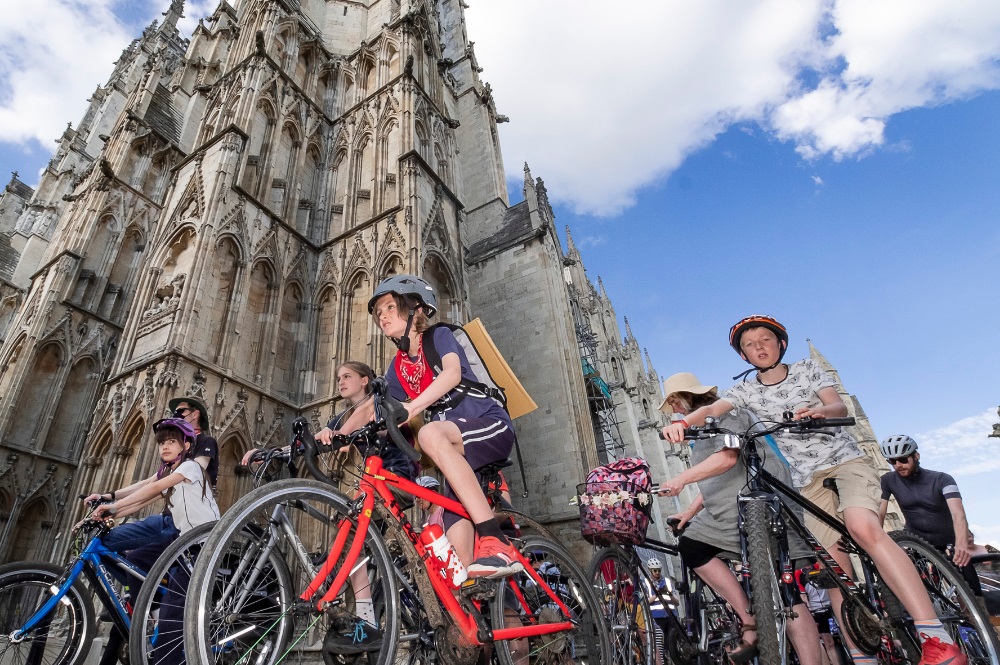Transport consultations in York “pit interest groups against one another” and end up making decisions “that are not in the public good”, cycle campaigners have claimed.
The questions asked of the public are also “biased, leading and ambiguous”, according to a letter sent by the York Cycle Campaign (YCC) to City of York Council.
York residents have been presented with several consultations over the past year regarding changes to transport and infrastructure, many of which are controversial.
[tptn_list limit=3 daily=1 hour_range=1]
The letter states: “The council is reminded that consultations are not neutral: evidence suggests that they tend to attract responses from particular demographics (e.g. older residents who own cars) and favour the status quo over change, particularly radical change.”
It adds that there is a “tendency to cherry-pick data that support the status quo or the council’s desired outcome” and claims there is “a clear presumption against cycling, portraying cyclists as problematic.”
Kate Ravilous, co-chair of York Cycle Campaign, said: “The main problem we have is the way in which the questions are phrased are often biased in the first place, in that they present an opinion and then ask the question, and they can often also be very long, tangled questions – so it’s just not clear what you’re answering.”
Coppergate concern

Kate highlighted the current consultation on the one-way restriction in Coppergate, which mentions knock-on delays affecting buses and taxis, as being “incredibly biased”.
Active transport supporter Nathan Horner said the recent consultation on access to the city centre “sets a statistically unfounded opinion-based negative tone against cycling and shared use space, then asks a nonsensical question where it’s not clear what you are commenting on.”
James Gilchrist, director of environment, transport and planning, said: “I’d like to thank York Cycle Campaign for their ongoing input into our engagement work and agree wholeheartedly with their views on what makes quality consultation and engagement.
“We’ve made great progress in the last few years to improve the way we listen to a broader range of voices across York, making sure that different perspectives are shared, understood and presented effectively to decision-makers at the council, and ensuring that we bring under-represented demographics into the discussions.
“We’re currently working on plans for the next phase of engagement, which will keep residents at the heart of our Local Transport Plan.
“As part of this we will make sure that a wide and representative range of voices, including York Cycle Campaign, share their perspectives to help influence better sustainable and active travel around York.”
